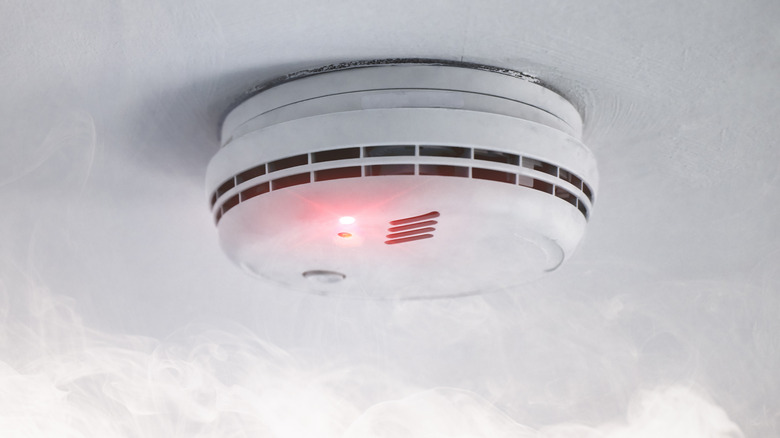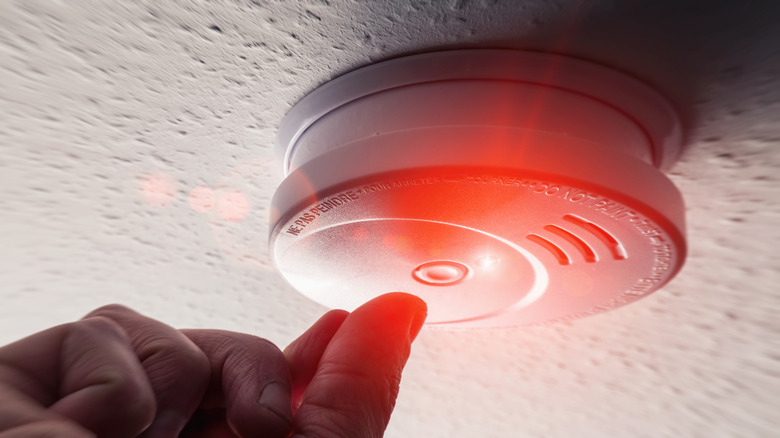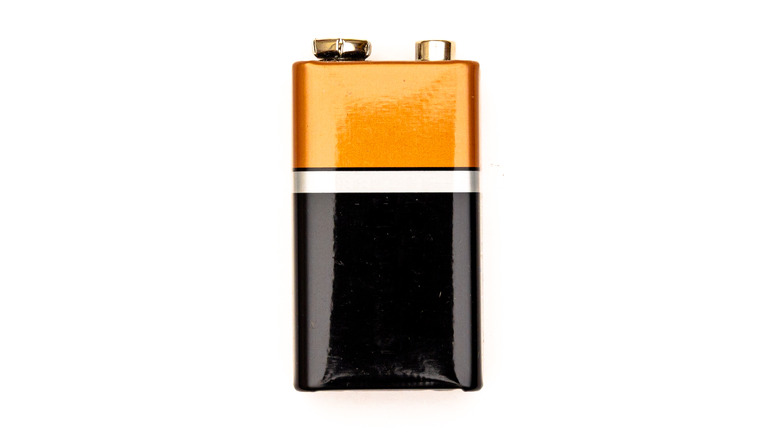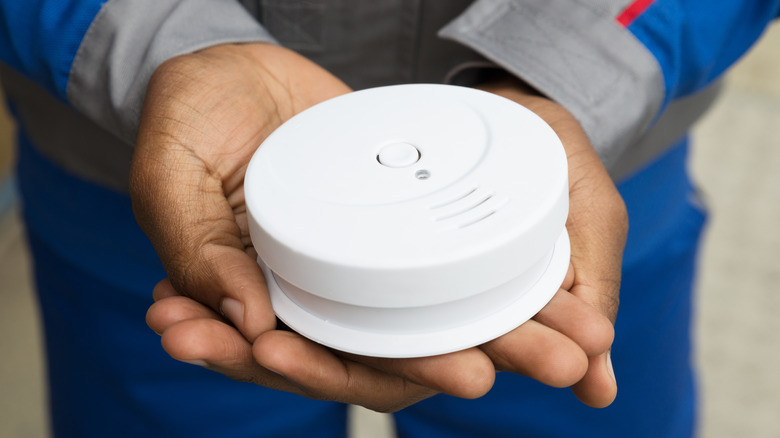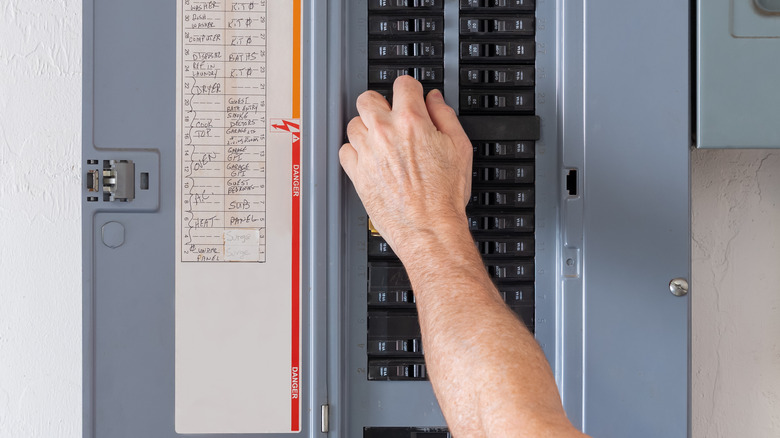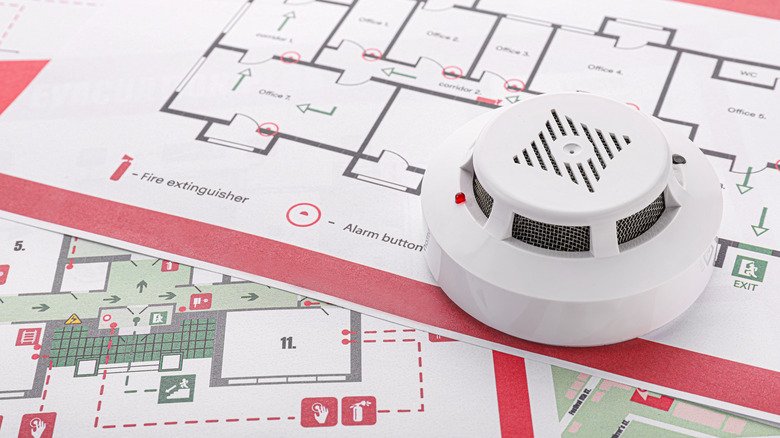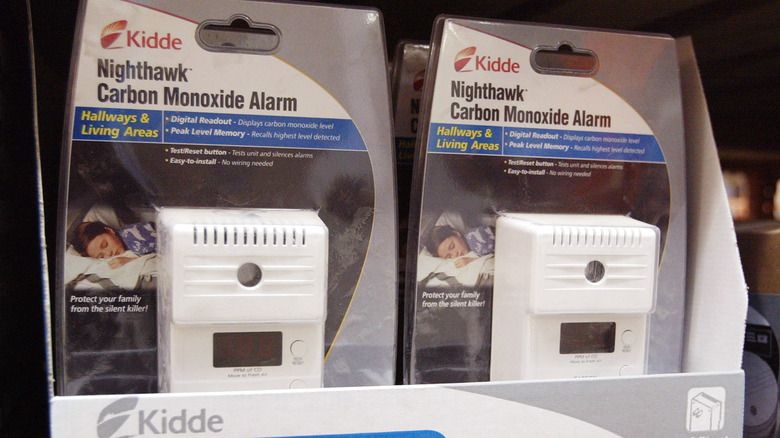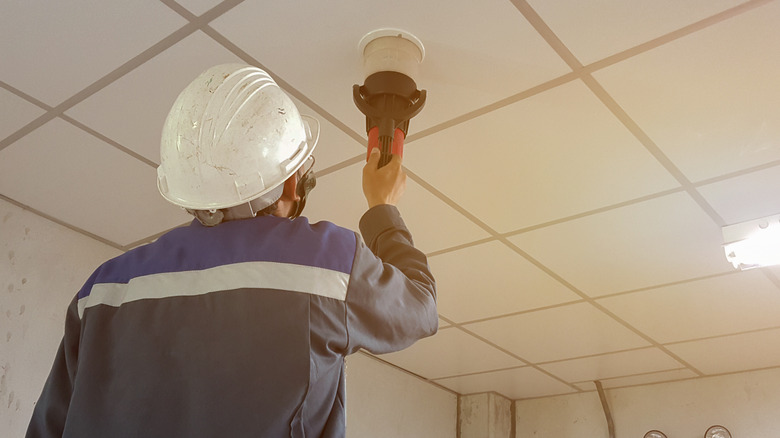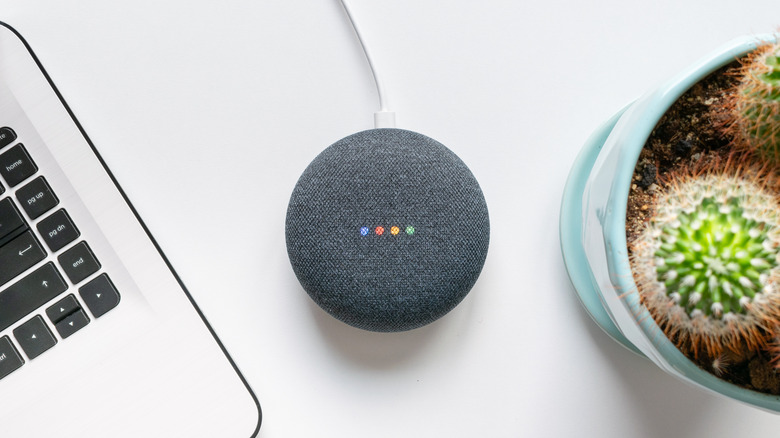9 Ways To Stop A Chirping Smoke Alarm
It might be one of the most annoying sounds in the world: a "chirping" smoke alarm. Sometimes called a smoke detector or a fire alarm, these tiny objects in your home can emit some of the most powerful noises. Literally designed so that you can't ignore it, sometimes these fire alarms need maintenance or a replacement and will begin making a noise to let you know.
Alarms have been around since the late 1800s, according to My Smoke Alarm, but the first battery operated model was released in 1969 by the company that would later become known as First Alert. Cutting the cord allowed for a greater proliferation of these life-saving devices in homes, including the 1976 Life Safety Code (National Fire Protection Association 101) which called for an alarm (or multiple) to be in every home. The adoption of smoke alarms, quite simply, increased life saving odds dramatically.
Prior to the adoption of the fire alarm, residents only had a 10% chance of making it out of a house fire because they lacked life-saving early notice. Smoke alarms today have greatly advanced in technology including wired, long-lasting, cordless, smart tech, and more. These devices, however, are only effective if working correctly. Keep your household safe, and your ears happy, by learning how to fix that chirp.
Reset the fire alarm
To start, remove the battery from either powered or unpowered smoke alarms to reset and clear any errors that may cause chirping. Powered units may also need to be disconnected from wall power. SF Gate then suggests pressing the "test" button for 15 seconds until you hear a beep, which you can silence with the "silence" or "hush" button. For wired alarms type in *72 instead. Reconnect all power and the beeping should stop — unless something else is wrong.
Find a 9-volt battery
You may also need to replace your 9-volt battery. Home Depot suggests you remove the cover and then carefully disconnect the battery. Replace the old battery with a new one and perform a test/reset procedure as above. If you do not hear a beep upon testing, or the chirping doesn't stop, double-check the battery is connected correctly. If the alarm still does not work right, you may need to consider other methods of fixing the alarm or a total replacement.
Clean your smoke alarm thoroughly
Sometimes a smoke alarm can malfunction for the most mundane reasons. If your home is prone to dust, you did any sort of recent remodel, or you have pets, this can be especially true. Maid Brigade suggests dusting the outside of your smoke detector with a microfiber cleaning cloth, than using a vacuum attachment to suction the rest after you detach the battery. Never submerge your smoke alarm in water and don't use any type of liquid chemicals. Test again after cleaning.
Disconnect hardwired alarms
Hard-wired smoke alarms may not reset by simply removing or replacing a battery. For alarms that are plugged into the electrical system of your home you may need to completely disconnect the power to eliminate chirping. Hunker suggests shutting your device off at the circuit breakers by flipping the switch associated with the area. Have a helper watch to make sure the LED indicator light shuts off as well as the sound silences. Wait a short time then flip the switch back on. Test and forget until regular maintenance.
Replace your residential smoke alarm
Sometimes a smoke alarm is simply broken, and in this case you'll need to replace your alarm. If replacing a battery operated alarm, consider switching to a long-life battery alarm that will require less maintenance. Simply pull down the old alarm and replace with a new one.
If replacing a hard-wired alarm, most modern alarms don't require an electrician. The Washington Post advises checking the connection to look for a small plug (think old school phone cord). You can unplug one alarm and simply plug the next one in. If you have loose wires with a twisted or crimped connection, you may need to call an electrician; don't mess with live wires unless you have the expertise.
Install a long-life smoke alarm
Speaking of replacement, adding a long-life smoke detector instead of an older or economy model will likely minimize that chirping for years to come, as well as save you on replacement battery cost. Kidde describes their sealed long-life alarm as having a lithium battery that does not need replacement and that's good for 10 years. Also billed as a worry-free smoke alarm, these devices detect smoke with a photoelectric sensor.
Identify beeping carbon monoxide alarms
Not all beeping alarms are actually smoke alarms, but different alarms can often sound similar. Lifewire cautions that the most important thing to remember is to make sure there is no safety-related reason for your carbon monoxide alarm to sound in the first place (remember, unlike smoke, you won't see this hazard with your eyes). Once you've determined the chirping is simply harmless chirping, most carbon monoxide alarms follow the same reset and replacement process as your traditional smoke alarm. Check the battery, check the age and cleanliness of the device, and test.
Get professional assistance
Fire safety is too important to leave to a "good enough" approach. If you are unsure about fixing that chirp or have a more complex commercial or connected alarm, consider calling in the experts. The experts at HRSS explain that professionals will conduct regular maintenance and testing on your fire detection and prevention systems based on the latest expert guidance. If you hire a professional team, you may never be stuck listening to chirping alarms again.
Use your app
Tech-lovers might have upgraded to smart-home fire alarms like the Nest Protect. These specific alarms are supposed to have a long lifespan and perform self-testing and maintenance, but we've all experienced a computer glitch before. Since most of these smart-home devices now use human-sounding voices and more specific guidance of any danger, you probably won't have to deal with mystery chirping. If, however, your alarm is making unwanted sounds, you can silence or reset these devices from the app on your mobile device.
